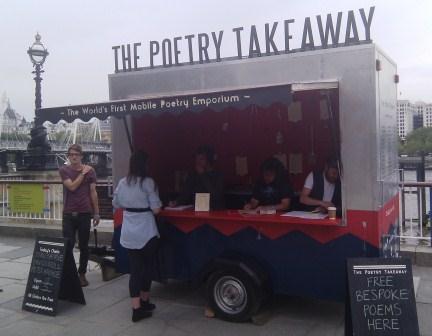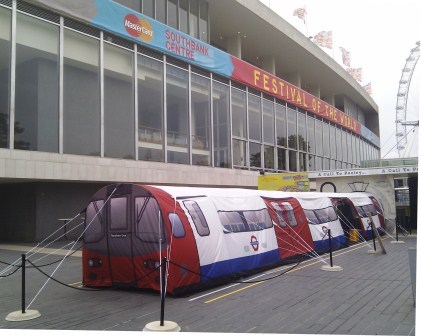Autumn seems to have crept upon us — it’s grey, drizzly and windy outside — and I’m facing the realisation  that I’ve not written half as much as I hoped over the summer. I made some amends last week by bashing out about 15,000 words. I deliberately just sat down and wrote and didn’t go back and revise anything methodically — and I know some of it is very bad.
I’ve developed a pattern of writing a first draft, printing it out and making corrections on the paper (they seem easier to spot), then printing it again and reading the whole piece out loud (not just the dialogue). After that process I’m usually reasonably happy with it but if I give it someone else to read I then tend to identify a whole slew of other mistakes. I guess this is the basis of the ‘put it in a drawer for a couple of weeks (or months) before looking at it again’ school of advice. This is all very time consuming — but necessary.
I found some sections quite easy and enjoyable to write and I’m still struggling on others. In fact, I may try writing some poetry to describe some of the natural features of the Chiltern landscape I’ve been trying to portray and then cannibalise it.
One good thing about grinding out the words is that I can suddenly take off in unexpected directions and I’ve come up with more ideas for plot and character later in the novel than if I’d just considered them in my head. But that also has the disadvantage of bringing in diversions and new directions in the material I’d originally intended to write.
So while it’s gratifying to have 15,000 more words (probably a sixth of a novel) more than I had ten days ago, I’m also a little exasperated that it’s going to need maybe twice or three times as much time again to revise and that, as with my opening chapters, not a lot seems to have happened in a large number of words. However, my intention was in this section to deliberately slow the pace almost to the point where the reader becomes impatient for fireworks to start exploding and I’ve tried to weave a lot of plot background and backstory into these sections.
Overall I think what I’ve written is good and that I definitely believe in it — and I often surprise myself at how much the novel reflects me personally — which shows that at a deep psychological level I’m probably impelled on an irreversible course to write this. However, I’m probably both a bit of a ‘needy’ writer and one who tends to write for an audience rather than just please myself so that’s why it’s a good thing that in less than four weeks I’ll be workshopping some of this material with the majority of the City novel-writing group. We’re meeting monthly on an extra-curricular basis.
Penny Rudge, when she visited the course, said that virtually every chapter of ‘Foolish Lessons in Life and Love’ had been through a post-course workshopping process with her peers. I tend to want to make use of peer feedback to a similar extent – while I could plough on independently  it will be fascinating to meet up with everyone to see how people are getting on.
As mentioned in a previous post we have at least one person whose work on the course has led to being signed by an agent and I know that a few people sent work out to agents after the reading, although I know of only the person who’s actually finished the novel — and he’s now redrafting. In my case it would probably instill some discipline by having an agent’s validation, encouragement and deadline setting. Yet agents can only make active progress when they have a full novel manuscript to work with and I don’t have anything yet in a shape I’d be happy to send out. The way I write means it’s not going to be a quick process for me to get the material into the shape that most advice tends to emphasise before one’s work goes near an agent or publisher – for it to be ‘the best it can possibly be’.  My tendency, mentioned above, to branch off tangentially in a random or arbitrary direction as I’ve been writing is sometimes good and serendipitous but means everything will need to be looked at again i.e. once I get to the end of the novel then I’ll want to make some significant changes to the start.
As an example, I had some very useful feedback from Guy and Charlotte on the course to chapters six and seven and, even though I’d spent a lot of time writing the chapters, Guy pointed out lots of ‘noise words’ like ‘just’, ‘perhaps’, ‘maybe’, ‘a little’ and so on that seem to become invisible on the page if you’ve stared at it too long in one session.
I also posted a reference to a recently written part of the novel a fellow student’s wall on Facebook and the brief exchange of comments that followed opened up a new aspect to Kim and James’ long, drawn-out first day that I’d failed to explore. That accounted for the rather meagre 300 words I managed on holiday.
There will also be a need to maintain consistency, particularly in dialogue. As mentioned in previous postings, Kim will be fluent in English but will perhaps have some transatlantic turns of phrase plus perhaps a tendency to construct sentences grammatically as they would be in German. I think I’ve largely achieved this as I’ve gone along and she speaks little phrases in her first language from time to time. I’ve been dropping these in with increasing frequency making use of my limited German.  Kim’s English is described by another character (I’m told that this is grammatically correct, which surprised me): ‘Dein Englisch ist sehr flüssig, aber Sie sprechen mit einem leichten deutschen Akzent – sehr Hochdeutsche.’
Any suggestions?



